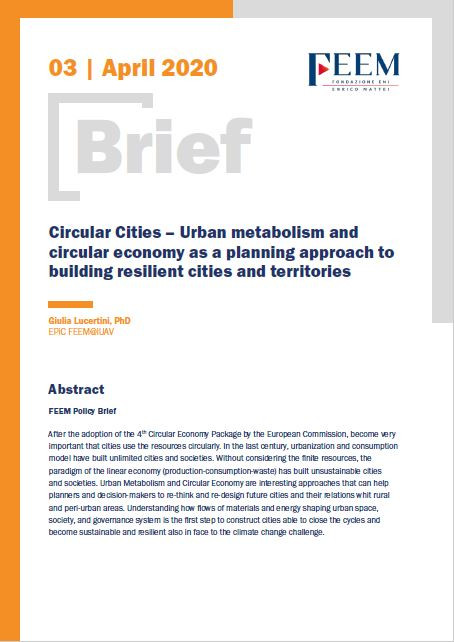Circular Cities – Urban metabolism and circular economy as a planning approach to building resilient cities and territories
After the adoption of the 4th Circular Economy Package by the European Commission, become very important that cities use the resources circularly. In the last century, urbanization and consumption model have built unlimited cities and societies. Without considering the finite resources, the paradigm of the linear economy (production-consumption-waste) has built unsustainable cities and societies. Urban Metabolism and Circular Economy are interesting approaches that can help planners and decision-makers to re-think and re-design future cities and their relations whit rural and peri-urban areas. Understanding how flows of materials and energy shaping urban space, society, and governance system is the first step to construct cities able to close the cycles and become sustainable and resilient also in face to the climate change challenge.
After the adoption of the 4th Circular Economy Package by the European Commission, become very important that cities use the resources circularly. In the last century, urbanization and consumption model have built unlimited cities and societies. Without considering the finite resources, the paradigm of the linear economy (production-consumption-waste) has built unsustainable cities and societies. Urban Metabolism and Circular Economy are interesting approaches that can help planners and decision-makers to re-think and re-design future cities and their relations whit rural and peri-urban areas. Understanding how flows of materials and energy shaping urban space, society, and governance system is the first step to construct cities able to close the cycles and become sustainable and resilient also in face to the climate change challenge.

